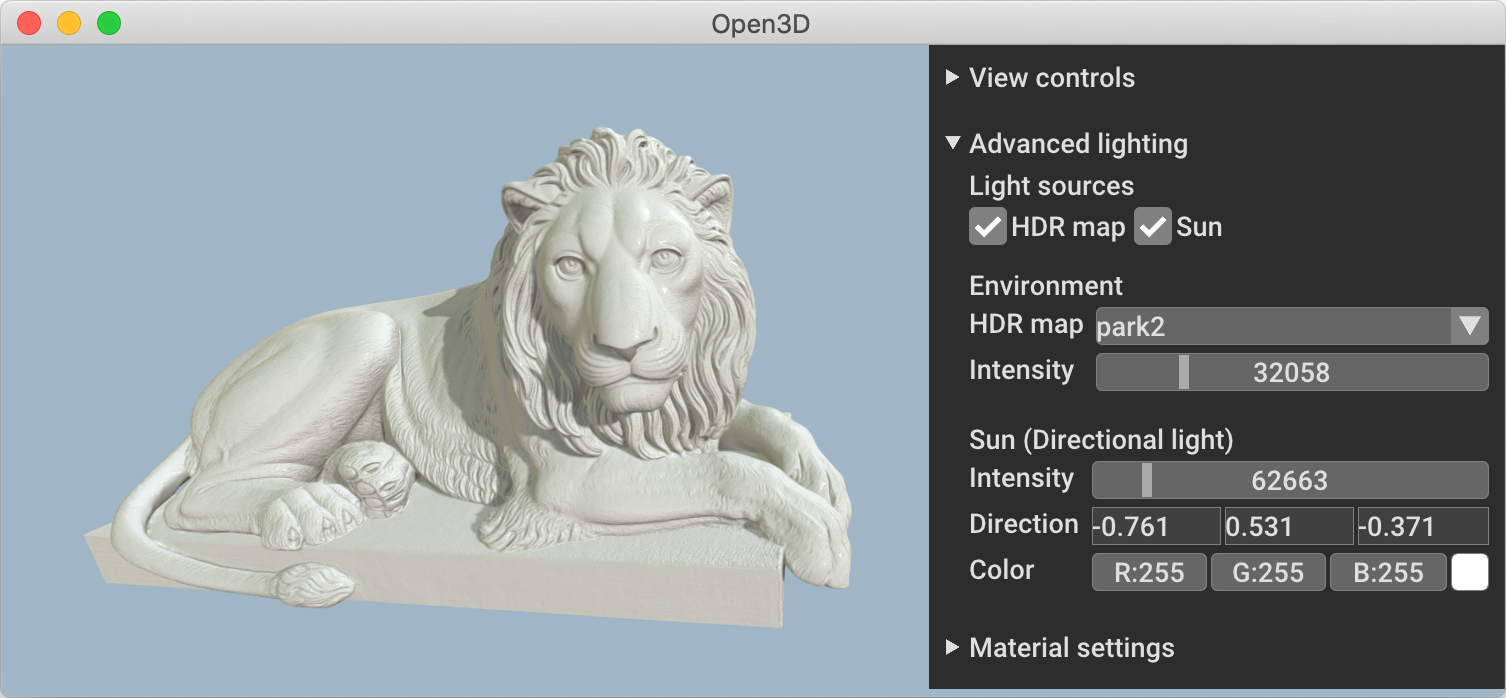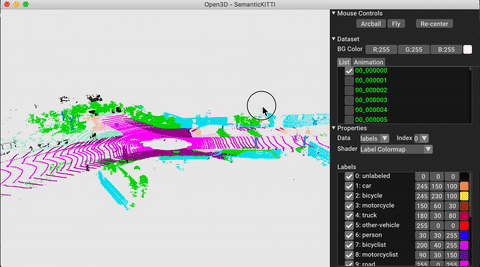open3d/cpp/pipelines/registration下修改了Registration.{cpp, h}和TransformationEstimation.{cpp, h}。- 增加了相关的registration_icp2d 的 pybind函数
open3d/cpp/pybind/pipelines/registration/registration.cpp
Ubuntu/macOS
- Install dependencies
util/install_deps_ubuntu.sh- Build
mkdir build
cd build
cmake ..
make -j$(nproc)
- Build Python Package
make python-package
- Test
cd build/lib/python_package
python
import open3d
or
make pip-package
cd lib/python_package/pip_package
then pip install with *.whl file.
- C++ and Python examples
cd examples/{cpp, python}
def point_to_plane_icp_2d(source, target, threshold):
trans_init = np.eye(4)
print("Apply point-to-plane ICP")
reg_p2l = o3d.pipelines.registration.registration_icp2d(
source, target, threshold, trans_init,
o3d.pipelines.registration.TransformationEstimationPointToPlane(), use_dz=True, use_pitch=False)
print(reg_p2l)
print("Transformation is:")
print(reg_p2l.transformation, "\n")Homepage | Docs | Quick Start | Compile | Python | C++ | Open3D-ML | Viewer | Contribute | Demo | Forum
Open3D is an open-source library that supports rapid development of software that deals with 3D data. The Open3D frontend exposes a set of carefully selected data structures and algorithms in both C++ and Python. The backend is highly optimized and is set up for parallelization. We welcome contributions from the open-source community.
Core features of Open3D include:
- 3D data structures
- 3D data processing algorithms
- Scene reconstruction
- Surface alignment
- 3D visualization
- Physically based rendering (PBR)
- 3D machine learning support with PyTorch and TensorFlow
- GPU acceleration for core 3D operations
- Available in C++ and Python
For more, please visit the Open3D documentation.
Pre-built pip packages support Ubuntu 18.04+, macOS 10.15+ and Windows 10+ (64-bit) with Python 3.6-3.9.
# Install
pip install open3d
# Verify installation
python -c "import open3d as o3d; print(o3d.__version__)"
# Python API
python -c "import open3d as o3d; \
mesh = o3d.geometry.TriangleMesh.create_sphere(); \
mesh.compute_vertex_normals(); \
o3d.visualization.draw(mesh, raw_mode=True)"
# Open3D CLI
open3d example visualization/drawTo get the latest features in Open3D, install the development pip package. To compile Open3D from source, refer to compiling from source.
Checkout the following links to get started with Open3D C++ API
- Download Open3D binary package: Release or latest development version
- Compiling Open3D from source
- Open3D C++ API
To use Open3D in your C++ project, checkout the following examples
Open3D-Viewer is a standalone 3D viewer app available on Ubuntu and macOS. Please stay tuned for Windows. Download Open3D Viewer from the release page.
Open3D-ML is an extension of Open3D for 3D machine learning tasks. It builds on top of the Open3D core library and extends it with machine learning tools for 3D data processing. To try it out, install Open3D with PyTorch or TensorFlow and check out Open3D-ML.
- GitHub Issue: bug reports, feature requests, etc.
- Forum: discussion on the usage of Open3D.
- Discord Chat: online chats, discussions, and collaboration with other users and developers.
Please cite our work if you use Open3D.
@article{Zhou2018,
author = {Qian-Yi Zhou and Jaesik Park and Vladlen Koltun},
title = {{Open3D}: {A} Modern Library for {3D} Data Processing},
journal = {arXiv:1801.09847},
year = {2018},
}

